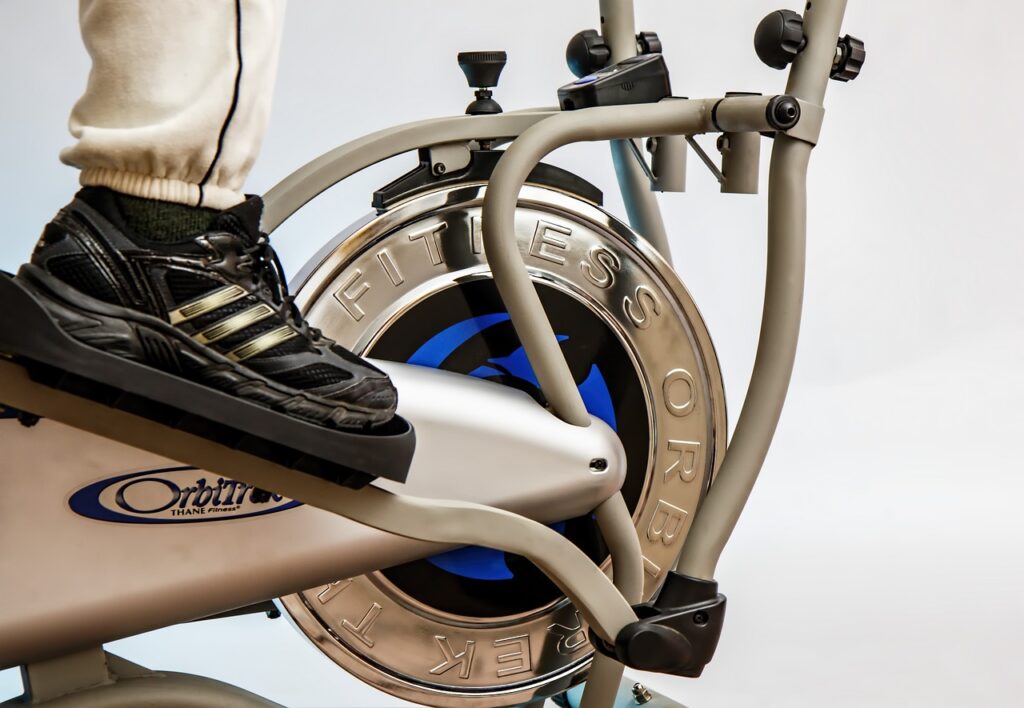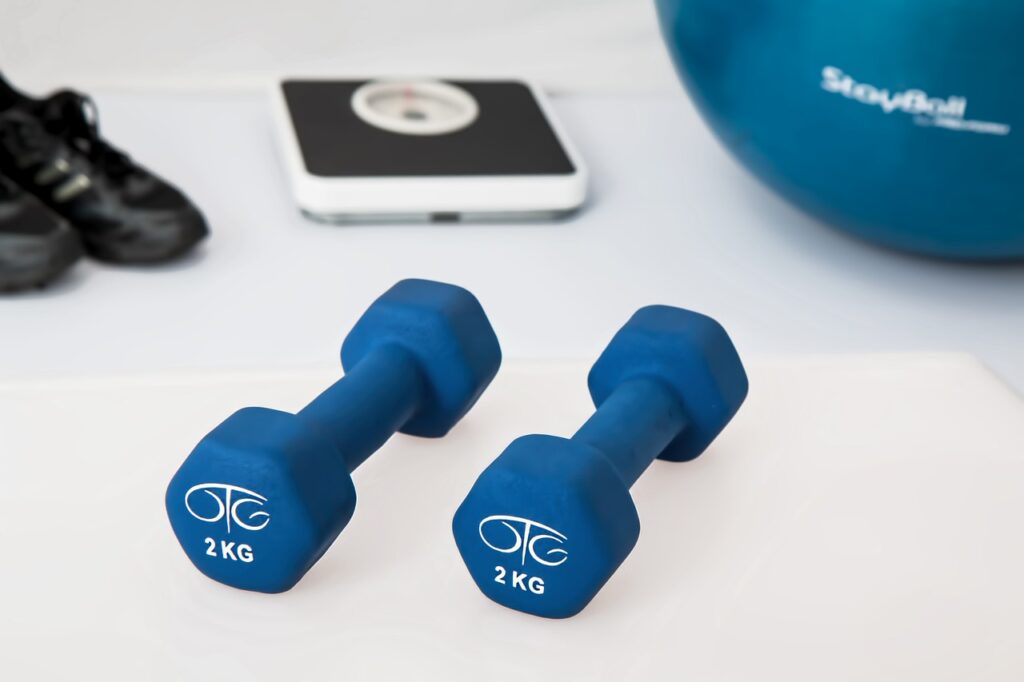
Fitness trackers have become a popular tool for those looking to improve their physical health. These devices are designed to monitor a range of metrics, from steps taken and calories burned to heart rate and sleep quality. One of the most common reasons people use fitness trackers is to help with weight loss, but does the data they provide really make a difference?
Some studies have suggested that fitness trackers can be an effective tool for weight loss. By providing users with real-time feedback on their activity levels, these devices can help motivate individuals to move more and make healthier choices. Additionally, many fitness trackers come with accompanying apps that allow users to set goals and track their progress over time, which can provide a sense of accomplishment and encourage continued effort.
However, other research has found that fitness trackers may not be as helpful as some people believe. Some studies have suggested that the data provided by these devices can be inaccurate, leading users to overestimate the amount of activity they are actually getting. Additionally, some people may become overly reliant on their fitness tracker, which can lead to a lack of motivation when they don’t have it with them. Ultimately, the effectiveness of fitness trackers for weight loss likely varies from person to person, and more research is needed to determine their true impact.
Table of Contents
Overview of Fitness Trackers
Fitness trackers are wearable devices that track and monitor physical activity, including steps taken, distance traveled, and calories burned. They are designed to help individuals stay motivated and achieve their fitness goals.
Most fitness trackers come equipped with sensors that track movement and other biometric data, such as heart rate and sleep patterns. This information is then synced to a mobile app or website, where users can track their progress and set goals.
Fitness trackers come in a variety of styles and price points, ranging from simple step counters to more advanced models with GPS tracking and heart rate monitors. Some popular brands include Fitbit, Garmin, and Apple Watch.
While fitness trackers can be a useful tool for monitoring physical activity, they are not a magic solution for weight loss. It’s important to remember that weight loss is achieved through a combination of healthy eating habits and regular exercise, not just by wearing a fitness tracker.
Overall, fitness trackers can be a helpful tool for staying motivated and tracking progress, but they should be used in conjunction with a healthy diet and exercise routine for optimal results.
The Role of Fitness Trackers in Weight Loss
Monitoring Physical Activity
Fitness trackers can be a helpful tool for monitoring physical activity. They can track steps taken, distance traveled, and calories burned during exercise. This information can be used to set goals and track progress over time. By monitoring physical activity, individuals can get a better understanding of how much exercise they are getting and where they can make improvements.
Tracking Caloric Intake and Burn
In addition to monitoring physical activity, fitness trackers can also track caloric intake and burn. Many fitness trackers allow users to input their daily caloric intake and track the number of calories burned during exercise. This information can be used to create a calorie deficit, which is necessary for weight loss. By tracking caloric intake and burn, individuals can get a better understanding of their overall energy balance and make adjustments as needed.
Setting and Achieving Goals
Fitness trackers can also be helpful for setting and achieving weight loss goals. By tracking physical activity and caloric intake, individuals can set realistic goals for weight loss and track their progress over time. Fitness trackers can also provide motivation by allowing users to see their progress and celebrate their successes.
Overall, fitness trackers can be a useful tool for weight loss. By monitoring physical activity, tracking caloric intake and burn, and setting and achieving goals, individuals can get a better understanding of their overall energy balance and make adjustments as needed.
Scientific Evidence on Fitness Trackers and Weight Loss
Clinical Studies and Research Findings
Several clinical studies have been conducted to determine the effectiveness of fitness trackers in promoting weight loss. A study published in the Journal of the American Medical Association (JAMA) found that individuals who used fitness trackers lost less weight than those who did not use them. However, other studies have shown that fitness trackers can be effective in promoting weight loss when combined with other weight loss interventions, such as diet and exercise programs.
Accuracy of Fitness Tracker Data
The accuracy of fitness tracker data has also been a topic of debate in the scientific community. While fitness trackers can provide valuable information about physical activity, they are not always accurate in tracking certain types of activity, such as weightlifting or swimming. Additionally, the accuracy of the data can vary between different brands and models of fitness trackers.
Despite these limitations, fitness trackers can still be a useful tool in promoting weight loss when used in conjunction with other weight loss interventions. It is important to note, however, that the effectiveness of fitness trackers can vary between individuals and should not be relied upon as the sole method of weight loss.
Psychological Aspects of Fitness Trackers
Motivation Enhancement
Fitness trackers are known to enhance motivation by providing users with real-time feedback on their physical activity levels. This feedback can help users to stay on track with their fitness goals, as they are able to see how much progress they are making towards their goals. By tracking their progress, users are more likely to stay motivated and continue with their fitness routines.
Additionally, fitness trackers can help to motivate users by providing them with a sense of accomplishment. When users see that they have met or exceeded their daily activity goals, they feel a sense of pride and accomplishment. This can motivate them to continue with their fitness routines and strive towards their long-term fitness goals.
Behavioral Change and Habit Formation
Fitness trackers can also help users to form healthy habits and change their behavior. By tracking their physical activity levels, users are able to identify areas where they need to improve. For example, if a user notices that they are not meeting their daily activity goals, they may make an effort to walk more or take the stairs instead of the elevator.
Over time, these small changes can lead to significant improvements in health and fitness. By using a fitness tracker to track their progress, users are able to see the positive changes that they are making and stay motivated to continue with their healthy habits.
In conclusion, fitness trackers can be a valuable tool for enhancing motivation and promoting healthy behavior change. By providing users with real-time feedback and helping them to track their progress, fitness trackers can help users to stay on track with their fitness goals and form healthy habits that can lead to long-term improvements in health and wellness.
Potential Limitations of Fitness Trackers
Dependence and Over-Reliance
One potential limitation of fitness trackers is that users may become too dependent on them. While they can be helpful in motivating people to exercise and stay active, relying solely on a fitness tracker to reach weight loss goals may not be effective in the long term. Users may become discouraged or lose motivation if they do not see immediate results, or if they are unable to meet the goals set by the device.
Furthermore, some users may rely too heavily on the data provided by the tracker, without considering other factors that may impact their weight loss progress. For example, a person may have a high step count for the day, but if they are consuming more calories than they are burning, they may not see the desired weight loss results.
Inaccuracy and Misinterpretations
Another potential limitation of fitness trackers is that they may not always be accurate in tracking activity levels and calories burned. Factors such as device placement, movement type, and individual differences in metabolism can all impact the accuracy of the data provided by the tracker.
In addition, users may misinterpret the data provided by the device, leading to incorrect assumptions about their progress. For example, a person may assume that they have burned a significant number of calories during a workout, but in reality, the tracker may have overestimated the amount of energy expended.
Overall, while fitness trackers can be a helpful tool in weight loss efforts, it is important to consider their potential limitations and use them in conjunction with other methods of monitoring progress and achieving weight loss goals.
Integrating Fitness Trackers into a Weight Loss Plan
Complementary Strategies
Fitness trackers can be a useful tool to help individuals achieve their weight loss goals. However, they are not a magic solution on their own. To maximize the benefits of fitness trackers, it is important to integrate them into a comprehensive weight loss plan that includes complementary strategies.
One such strategy is to make dietary changes. This can include reducing calorie intake, increasing consumption of fruits and vegetables, and choosing lean protein sources. By making these changes, individuals can create a calorie deficit that will help them lose weight.
Another complementary strategy is to engage in regular physical activity. Fitness trackers can help individuals track their exercise habits and set goals for themselves. However, it is important to choose activities that are enjoyable and sustainable, rather than forcing oneself to do something that is unpleasant.
Personalized Fitness Plans
Fitness trackers can also be used to create personalized fitness plans. By tracking one’s activity levels, individuals can identify areas where they need to improve and set specific goals for themselves. For example, if someone is not meeting their daily step goal, they can set a goal to take a certain number of steps each day.
In addition, fitness trackers can be used to monitor progress over time. By tracking weight loss and fitness goals, individuals can see how far they have come and make adjustments to their plan as needed.
Overall, fitness trackers can be a valuable tool for individuals looking to lose weight. By integrating them into a comprehensive weight loss plan that includes complementary strategies and personalized fitness plans, individuals can maximize their chances of success.
User Experiences and Testimonials
Fitness trackers have become increasingly popular among individuals who are looking to lose weight. Many users have reported positive experiences with using fitness trackers as a tool to help them achieve their weight loss goals.
One common benefit reported by users is that fitness trackers provide a sense of accountability and motivation. By tracking their progress and seeing their daily activity levels, users are encouraged to make healthier choices and stay on track with their weight loss journey.
Another benefit reported by users is that fitness trackers provide valuable insights into their daily habits. By tracking their food intake and exercise habits, users are able to identify areas where they can make improvements and adjust their routines accordingly.
Some users have also found that fitness trackers help them stay on track with their fitness goals by providing reminders and notifications. For example, a user may receive a reminder to take a walk or do a quick workout if they have been inactive for a certain period of time.
Overall, user experiences and testimonials suggest that fitness trackers can be a helpful tool for individuals looking to lose weight. While results may vary, many users have reported positive outcomes and improved overall health and wellness.
Advancements in Fitness Tracker Technology
Fitness trackers have come a long way since their inception. With advancements in technology, modern fitness trackers are becoming more accurate and feature-rich, providing users with a wealth of data about their health and fitness.
One of the major advancements in fitness tracker technology is the inclusion of heart rate monitors. This feature allows users to track their heart rate during workouts and throughout the day, giving them a more accurate picture of their overall health. Some fitness trackers even have the ability to track heart rate variability, which can provide insights into stress levels and recovery time.
Another important advancement is the inclusion of GPS tracking. This feature allows users to track their workouts and routes, providing them with valuable data about their pace, distance, and elevation. This information can help users set goals and track their progress over time.
Sleep tracking is another feature that has become increasingly common in fitness trackers. By monitoring sleep patterns, users can gain insights into their sleep quality and make adjustments to improve their overall health.
Newer fitness trackers also have the ability to track a wider range of activities, including swimming and cycling. This allows users to accurately track their workouts, regardless of the activity.
Overall, advancements in fitness tracker technology have made it easier than ever for users to track their health and fitness. With accurate data and a wealth of features, fitness trackers can be a valuable tool for anyone looking to improve their overall health and well-being.
Choosing the Right Fitness Tracker
Choosing the right fitness tracker can be a daunting task, given the variety of options available in the market. Here are some factors to consider when selecting a fitness tracker:
1. Features
Different fitness trackers come with different features. Some basic features to look for include step counting, calorie tracking, heart rate monitoring, and sleep tracking. More advanced features may include GPS tracking, water resistance, and smartphone notifications. Consider which features are most important to you and choose a fitness tracker that meets those needs.
2. Design and Comfort
Since you will be wearing your fitness tracker for most of the day, it’s important to choose one that is comfortable to wear. Look for a design that fits your wrist comfortably and is lightweight. Some fitness trackers come with interchangeable bands, allowing you to switch up the look of your tracker.
3. Compatibility
Make sure the fitness tracker you choose is compatible with your smartphone’s operating system. Many fitness trackers require a smartphone app to access all of their features, so it’s important to ensure that the app is compatible with your phone.
4. Battery Life
Consider the battery life of the fitness tracker you choose. Some trackers may need to be charged daily, while others can last up to a week on a single charge. Choose a fitness tracker with a battery life that meets your needs.
5. Price
Fitness trackers come at a range of price points, from budget options to high-end models. Consider your budget and choose a fitness tracker that fits within it. Keep in mind that more expensive models may come with additional features and higher quality materials.
By considering these factors, you can choose a fitness tracker that meets your needs and helps you achieve your fitness goals.
Frequently Asked Questions
What are the most effective features of fitness trackers for weight loss?
Fitness trackers can be effective tools for weight loss as they provide data on physical activity, calories burned, and heart rate. The most effective features for weight loss include step tracking, calorie tracking, and sleep tracking.
Can using a fitness tracker improve overall health and fitness?
Yes, using a fitness tracker can improve overall health and fitness by providing motivation to be more active and helping individuals track their progress towards fitness goals. Additionally, some fitness trackers offer features such as guided workouts and heart rate monitoring that can help individuals improve their fitness levels.
How does a Fitbit device aid in weight loss?
Fitbit devices aid in weight loss by tracking physical activity and providing data on calories burned. Fitbit also offers features such as food tracking and guided workouts that can help individuals stay on track with their weight loss goals.
What are the benefits of using an Apple Watch in a weight loss journey?
The Apple Watch offers features such as step tracking, calorie tracking, and heart rate monitoring that can aid in weight loss. Additionally, the Apple Watch offers guided workouts and reminders to stand and move throughout the day, which can help individuals stay active and burn more calories.
Are there significant differences in weight loss outcomes between various brands of fitness trackers?
While there may be differences in the specific features offered by different brands of fitness trackers, the overall impact on weight loss outcomes is likely to be similar. The most important factor in weight loss success is consistent tracking and adherence to a healthy diet and exercise plan.
Is investing in a fitness tracker a worthwhile expenditure for those trying to lose weight?
Investing in a fitness tracker can be a worthwhile expenditure for those trying to lose weight as it can provide motivation, accountability, and data to track progress towards weight loss goals. However, it is important to note that a fitness tracker alone is not a guarantee of weight loss success and must be used in conjunction with a healthy diet and exercise plan.

